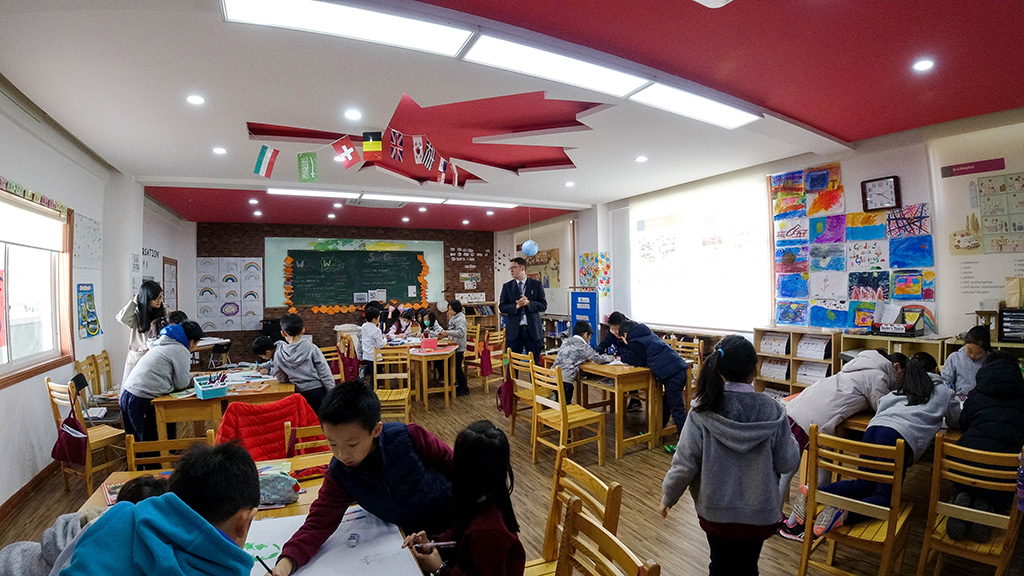Chris: My name's Chris, I'm from the United Kingdom, I teach English in Shanghai.
Samuel: My name is Samuel Desjardins, I'm from Montreal, Canada and I teach grade four and grade five.
Miranda: I'm Miranda and I'm from Pennsylvania, Pittsburg, and I'm teaching grade one ESL here at Shanghai Taiwanese Children's School with Foresight.
Samuel: I'm an ESL teacher also back home in Quebec, and Quebec is all about French-speaking, so, as an English teacher in a French community, I don't have my own classroom, so I go from classes to classes with my little buggy, so for me to be in Shanghai to have only two groups instead of eleven, and have my own classroom is just perfect.
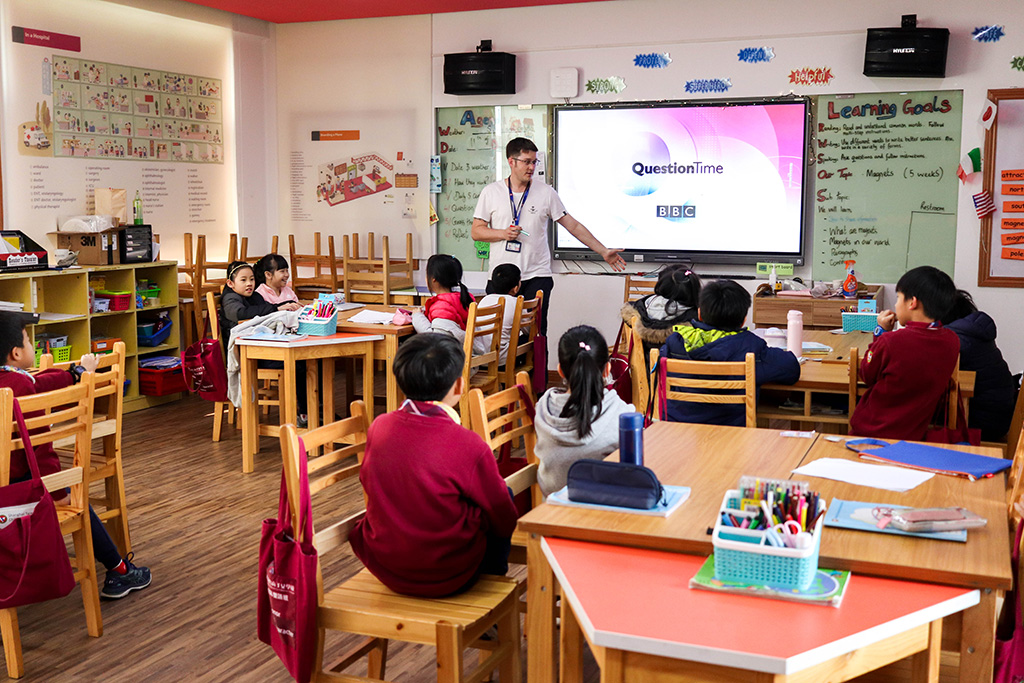
Chris: We base it on the Ontario curriculum, which is fairly similar to what I was teaching in the UK, teaching children English as a second language and using sort of Western ideas inside the classroom, as you can see, we've got centres, big boards, writing, immersive language. So I've got two classes, the class sizes are varied, I've got 22 and 23 [students in each class]. So we break down the curriculum into different sub-units so at the moment we're looking at magnets, so we wrap English around magnets, we look at how magnets work, where they are in the world, what they're made of.
Samuel: So right now we are teaching about the planets, so we're going all into the galaxy, the solar system, the different moons, and then we're moving forward towards the constellations and the myths and legends.
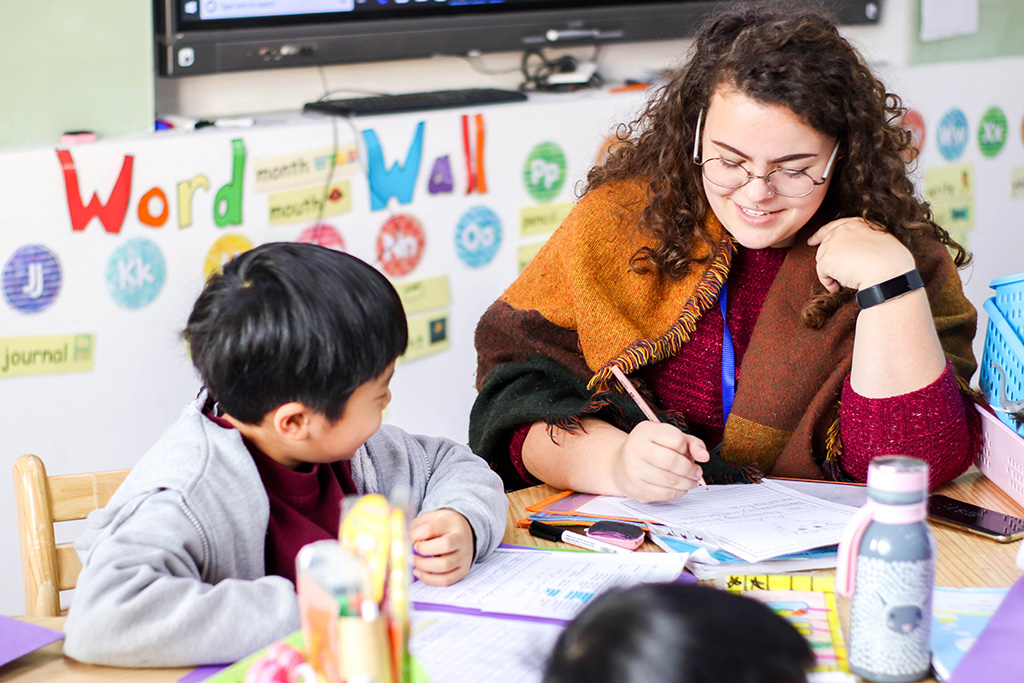
Miranda: With grade one, the first term was all about just kind of getting to know them, and now we're really starting to get into some reading skills and writing skills. We recently introduced some free writing so the students can write about whatever they want, but they have to write with sentences, so using big letters and periods, and we're constantly assessing each other's work for that and I'm getting some really great writing from them because they love the freedom.
Annekke: Throughout the week, we change between doing centres and doing the Daily Five, so on centre days, we have four stations set up throughout the room, usually a reading station, a writing station, teacher's work and just like a game, fun, entertaining English game, and then on Daily Five days, we will let the students choose what it is they want to do, they scatter throughout the room and just work quietly while I get to conference with students.
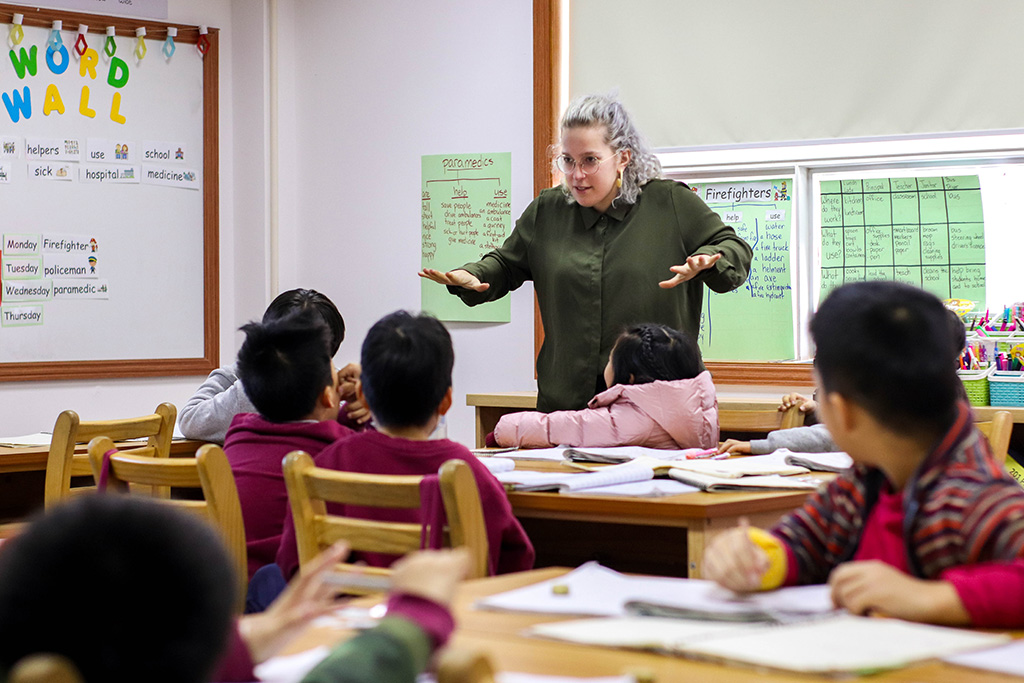
Miranda: So when my students come, I usually introduce them, we'll do some activities at the mat and some reading and we also do a lot of small group, centre-based learning so, when I get to work with just four students at a time and then there's some students on the iPads, and some students reading at the library.
Tanzina: We have a group leader for each group that they sit in so they know their responsibilities, the group leader will have to get all the pencils, pens, whatever it is for the group, so everybody has a responsibility, and that routine's been built since the beginning of the school year til now.
[off-camera] Can you tell me just a little about about your timetable and kind of how your day is broken up?
Samuel: Yeah, well it's really simple, try to wake up around 7:30, we start school at 8:00, luckily we live really close to the school, so we can just here in like five minutes, after that, we start at 8:00, we don't start classes until 8:40, we usually have two classes of 90 minutes each, depending on how they are placed in the day, sometimes we have meetings, and two times a week we have three classes of 90 minutes because we are teaching also health and art.
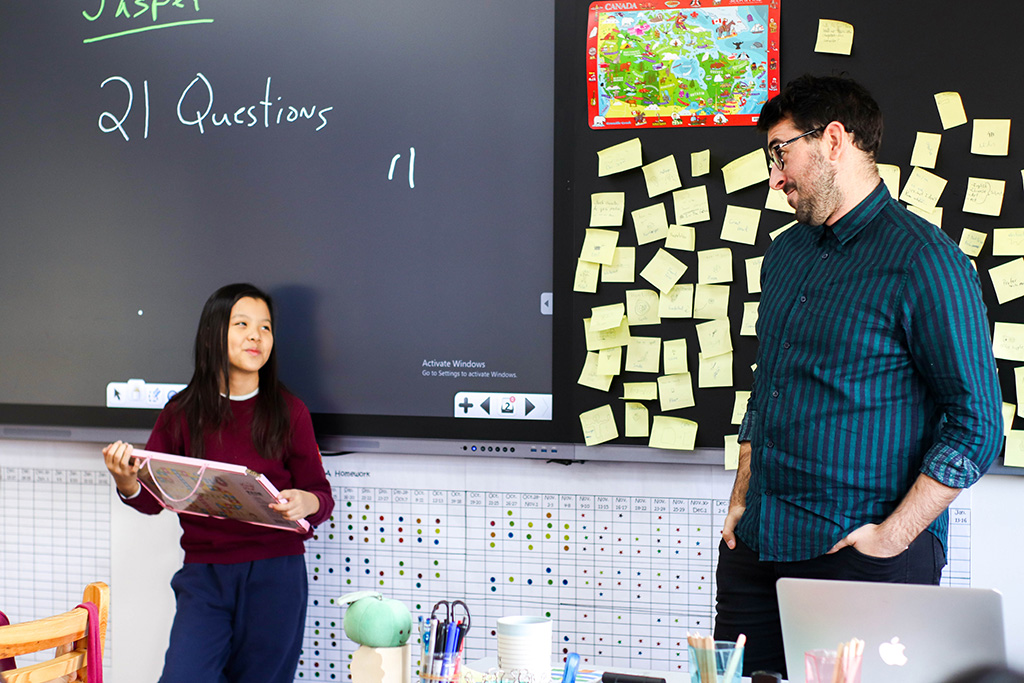
Miranda: I wish I had more time with them, because we have to cover so much. You know, they're learning a language and they really need as much immersion as possible. In our program, we cover reading, writing, and listening, and speaking, so when you think about that, 90 minutes, that's only like, 20 minutes for each strand so it really quickly fills up your time.
Tanzina: We have the opportunity of having multiple co-planning periods as well as we have scheduled meetings twice a week, which is great.
Emmanuel: We have some prep time in the morning before our classes start, we have some prep time usually after our last class finishes, and then we also have two sessions per week where we get together with our [grade] partner and work out lesson plans and materials.
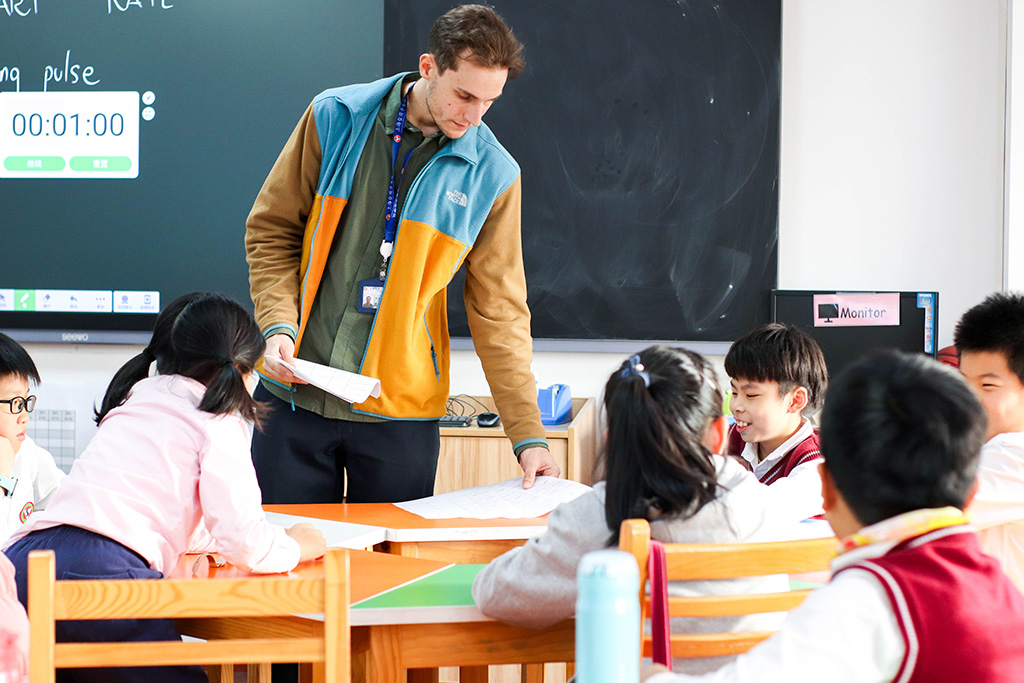
Chris: There are a lot of resources. The school will give us anything that we actually want, within reason.
Miranda: Coming from America, where your resources are not always provided for you, it's really amazing to be at a school where they provide pretty much my wildest dreams to me here
Chris: You know, the classes are really well-equipped, the books and everything is provided and paid for by the school, the kids in the program have everything they need.
Miranda: I have a really nice library, I have a mat for students to sit on, I have white boards that I use all the time in my centres, like, plastic vegetables and fruits for when I talk about that, I have animal toys to talk about animals seat cushions so we can sit on the floor sometimes, I have little writing desks, I have like, everything I could imagine. It's like, if I put it on the list, it shows up.
Samuel: One of the biggest resources that I have is my smartboard. My smartboard is crazy.
Annekke: I love my smartboard.
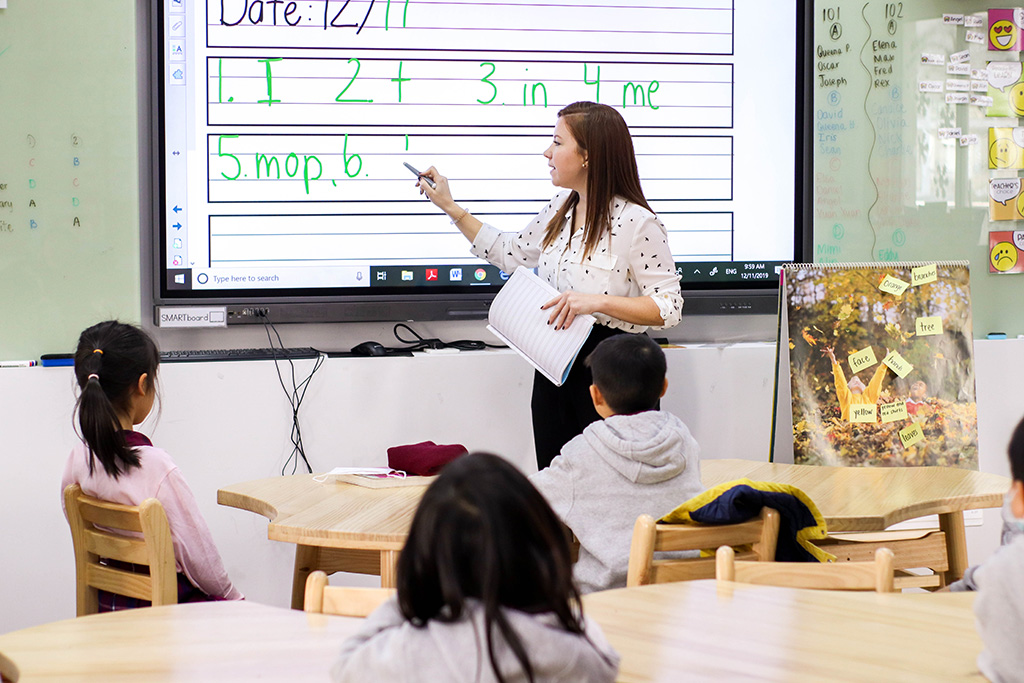
Samuel: I've never had a smartboard that's that awesome in any other school. I feel also the resources, like we can see what teachers are doing in Taipei, so we can look at what they're doing, also we can look at what, last year, they'd done so we can always create material using what they have created, but honestly, I feel that we have a lot of books that we can use ourselves, like, we create a lot of materials for ourselves because each teacher is different, so we really put our own flavour to it.
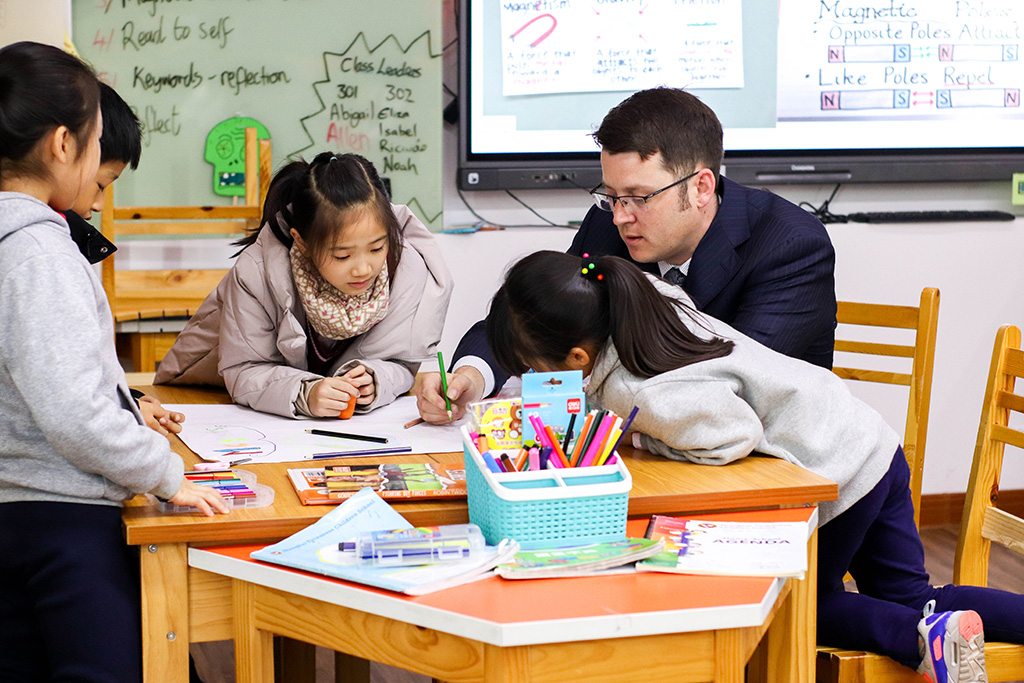
Tanzina: I think one of the best things of teaching lower grade, I have the opportunity of having an E.A. which is so important when you have younger kids so you just have a helping hand.
Emmanuel: There's quite a few material resources that we have access to, and then there are also a lot of people that we can go to. All of us have a partner that we work with, so that's a great resource, we really help each other, basically like create everything that we need in order to execute our classes.
Miranda: What's really nice is this program is very, very collaborative, so my first line of support is my grade partner and we plan all of our things together and we help each other stay organized, so when I need help, she's usually the first person I ask. We also have a site director and a teacher director on site with us willing to answer our questions.
Tanzina: Being in Shanghai, we have a very small and tight-knit group. We're seven teachers here, and everyone basically shares their experiences and shares their knowledge with each other, so we can always piggy off of each other.
Samuel: It's a really small team, so we get to know each other really well, sometimes we get on each other's nerves, of course, but like, we do activities together, we go out for Korean barbecue, we go out for sushi, we do other things than just being in school, so that's a really big plus of being in this small Shanghai team.
Tanzina: It's really good to have co-workers that you can sometimes depend on inside and outside of the classroom.
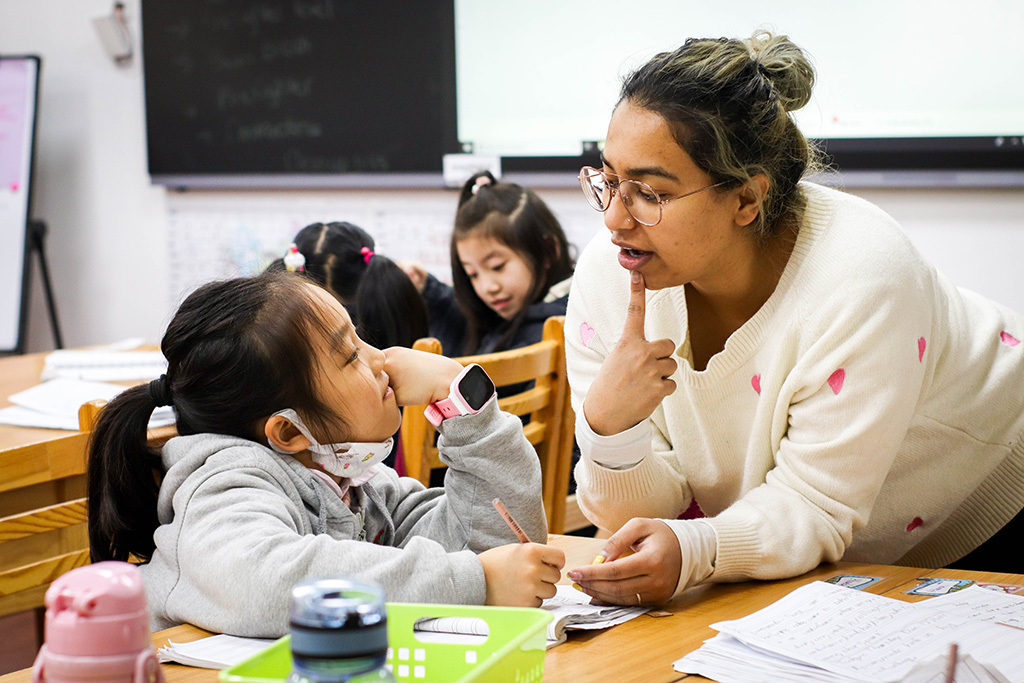
Hina: I'm Hina Tao, I'm the teacher director for the Shanghai Taiwanese Children's School.I make sure that we implement our program the way it's supposed to be implemented in Ontario. I've actually implemented a lot of professional development, I try to customize it to what [the teachers'] needs are at that point in time and also, I go and I visit their classes and I evaluate their classes, more in terms of, you know, what's going really well and what things can we do better. Each teacher, it's really great, they have their own style, and by now, everybody's established their own routine and they establish a relationship with their kids.
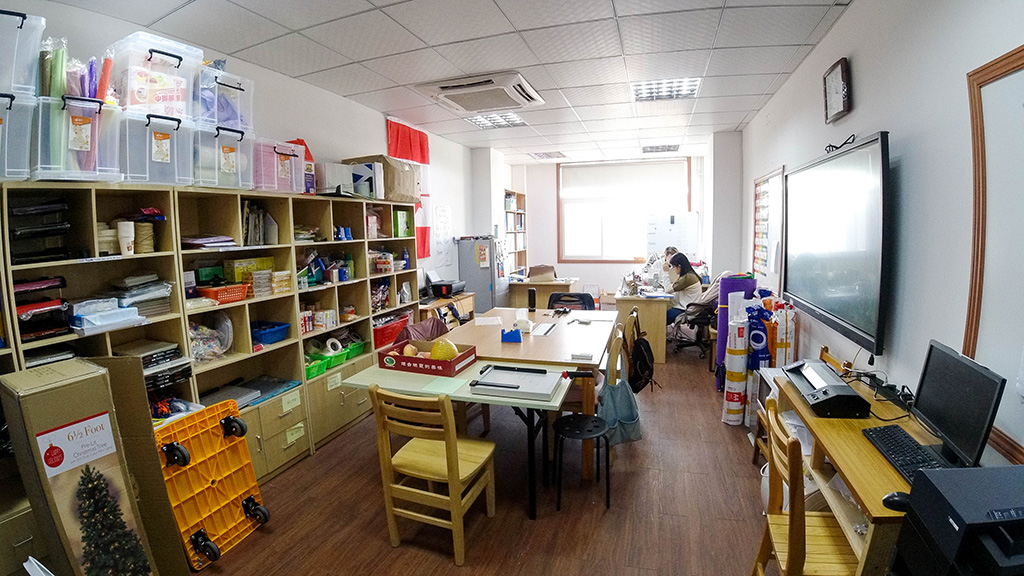
Chris: I'm thankful for Foresight giving me the opportunity, it's opened the gateway into China and where it leads me, as I said, professional development is offered by Foresight, they provide P.D. sessions.
Hina: We have experts from Ontario that help us with the curriculum and help us with professional development.
Annekke: The professional development that we have has improved how I teach reading. When I was in teachers' college, I didn't really grasp how to like, the steps of how to get a kid to read, because that just seemed like magic.The principals have given us excellent P.D. that has changed how I teach reading and writing and my kids' reading and writing has really been developing in like, surprising ways.
Miranda: There's a lot of constant observation, which, at first, can be really stressful, but I also get a lot of feedback on my teaching.
Annekke: I feel that the professional support that I've gotten from my leadership has made me improve as a teacher so much more than I would have if I had been in the States. In the United States, you just get like, one or two professional, like official, observations and then you get a sheet, you are graded, and you're done. But here, the leadership is always like, in and out of your room, you do have like, small, kind of personalized meetings with them every week. The involvement of the leadership has grown me as a professional.
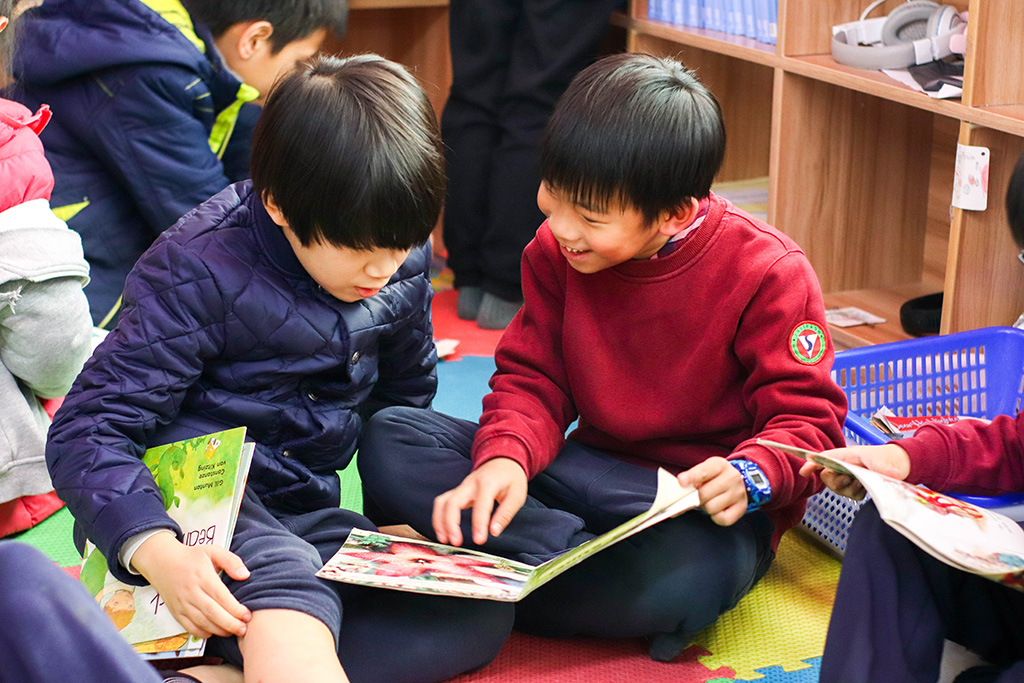
Miranda: I think one of the big things I've improved on is my classroom management Last year, my teacher director came in and co-taught with me for a week, and helped me establish a lot of classroom routines and they're mch clearer this year, and much more fluid in my classroom so I feel a lot more just, confident.
Annekke: So I have students that that are real challenges, and it is incredibly rewarding, when I see that they are able to get into the atmosphere of the classroom, behave appropriately, and then their academics can kind of like, catch up. They're surprising me, that they're showing initiative, because they see that I'm putting in effort with them. That's my most rewarding thing, is watching my low-level students surprise me.
Tanzina: I love my kids, my kids are great and they show me a lot of affection which makes me feel like I'm a good teacher, you know, and I'm doing something right. Or, I'm teaching them something, whether, sometimes it's just about being better people you know, I feel like, maybe I'm teaching them to be better people.
